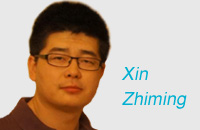Sacking of anti-trust economist
By Xin Zhiming (China Daily) Updated: 2014-08-15 17:33Zhang Xinzhu, a member of an expert panel advising China's State Council on anti-trust policy, has been fired for “violating disciplines” and helping compile a report for a major company, itself a target of the country's ongoing anti-monopoly investigation.
The reason is simple: If he is on the anti-trust panel Zhang should not at the same time work for a company under anti-trust investigation.
Qualcomm, the US chipmaker being investigated, said it has not directly paid Zhang and had hired a company, which in turn engaged Zhang in the compilation of the report written in response to charges that Qualcomm has used its market position to overcharge in China.
“Qualcomm paid Global Economics its standard rate for the firm's services. Qualcomm did not have any financial dealings with Professor Zhang,” said Qualcomm spokeswoman Christine Trimble in an email to the media.
By issuing the statement the company attempted to clear its involvement in the incident, but it only reveals its dubious role in the scandal.
It is unbelievable that the intermediary company, Global Economics Group LLC, a US firm Zhang serves, did not know Zhang is a member of the country's anti-trust expert panel. In other words, the company has purposely engaged Zhang in a project that leads to direct conflict of interest.
Then is it possible that Qualcomm did not know Zhang's role on the State Council anti-trust advisory panel? It is, but the possibility is very small. Normally, a multinational like Qualcomm should not have been so careless as to ignore the background of the author of such a crucial report.
Therefore, it is likely Qualcomm knowingly made use of Zhang's official role to defend its stance in the anti-trust charges, which is inappropriate.
Qualcomm excused its hiring of Zhang by saying “hiring economists to provide such economic analysis to anti-trust authorities is routine practice in government investigations in China and around the world”, but it certainly should not be a “routine practice” either in China or other countries to hire an economist that has a conflicting interest.
For Zhang, serving two conflicting roles has seriously violated the rules of the game and would not be tolerated in any country.
Zhang told Chinese-language media that he has the right to speak for Qualcomm. “Every case involves accuser and defendant; shouldn't the (defendant's) right to defend be respected?” he asked.
Indeed, the defendant has the right to speak, but isn't it strange if the lawyer hired by the accuser defends the defendant in court hearings?











